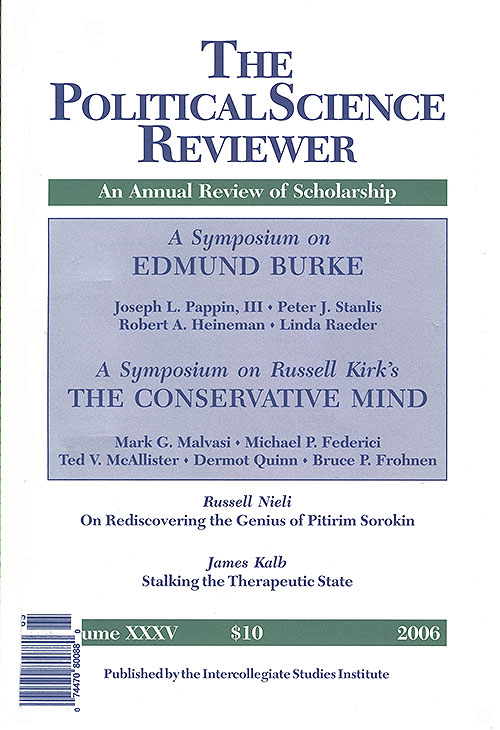Abstract
Edmund Burke is recognized by most modern conservatives asthe founding father of conservative political philosophy. Infact, it is practically inescapable for those who claim to beconservatives that they recognize Burke as the fountainhead ofconservatism. For the most part the Reflections on the Revolutionin France is cited as the seminal text, with its emphasis uponorder, custom, just prejudice, historical precedent, and prescriptiverights in the face of radical Jacobinism. Burke's rage againstthe French philosophes such as Rousseau, Voltaire, and Diderotwas in large part due to their rejection of religion, property, andconstitutional monarchy and their embrace of fanatical atheism,as he regarded their ultimate foundation. Burke's stance, based onsolid principles of justice and tradition, and also reflecting naturalsentiments of respect for the manners and habits of an orderedsociety, seems to have a transparency that is clear to all.
